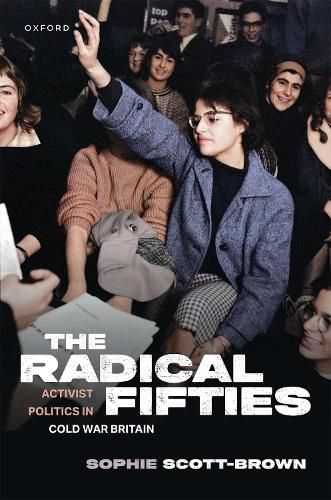Readings Newsletter
Become a Readings Member to make your shopping experience even easier.
Sign in or sign up for free!
You’re not far away from qualifying for FREE standard shipping within Australia
You’ve qualified for FREE standard shipping within Australia
The cart is loading…






The 1950s are usually portrayed as conservative, conformist, and apathetic, but was there more to this much-maligned decade than that? In Britain, the convergence of conflicting political moments-the Cold War, the Bomb, the rise of America, the decline of the empire, welfare, and affluence- compelled a rapid rethinking of what it meant to 'be political' along with a series of experiments in democracy and democracy education. The Radical Fifties examines the distinctive 'activist politics' emerging from this by focusing on the entwined histories of its main protagonists: the Freedom Press anarchists, the New Left Club socialists, and the Direct Action Committee pacifists.Instead of gaining or influencing power in a traditional sense, these groups wanted to dispense with it all together and transform democracy into a whole way of life, a quality of interaction between people. While this upturned conventional political thinking, it also posed a dilemma: conceding the practice of democracy also meant conceding the ability to determine its ends and direct it activities. In contrast to the assertive radicalism of the sixties, this appeared dismally unambitious, yet it confronted more directly and seriously the defining questions of the times: could democratic means produce democratic ends? If not, was it still democracy?
$9.00 standard shipping within Australia
FREE standard shipping within Australia for orders over $100.00
Express & International shipping calculated at checkout
The 1950s are usually portrayed as conservative, conformist, and apathetic, but was there more to this much-maligned decade than that? In Britain, the convergence of conflicting political moments-the Cold War, the Bomb, the rise of America, the decline of the empire, welfare, and affluence- compelled a rapid rethinking of what it meant to 'be political' along with a series of experiments in democracy and democracy education. The Radical Fifties examines the distinctive 'activist politics' emerging from this by focusing on the entwined histories of its main protagonists: the Freedom Press anarchists, the New Left Club socialists, and the Direct Action Committee pacifists.Instead of gaining or influencing power in a traditional sense, these groups wanted to dispense with it all together and transform democracy into a whole way of life, a quality of interaction between people. While this upturned conventional political thinking, it also posed a dilemma: conceding the practice of democracy also meant conceding the ability to determine its ends and direct it activities. In contrast to the assertive radicalism of the sixties, this appeared dismally unambitious, yet it confronted more directly and seriously the defining questions of the times: could democratic means produce democratic ends? If not, was it still democracy?